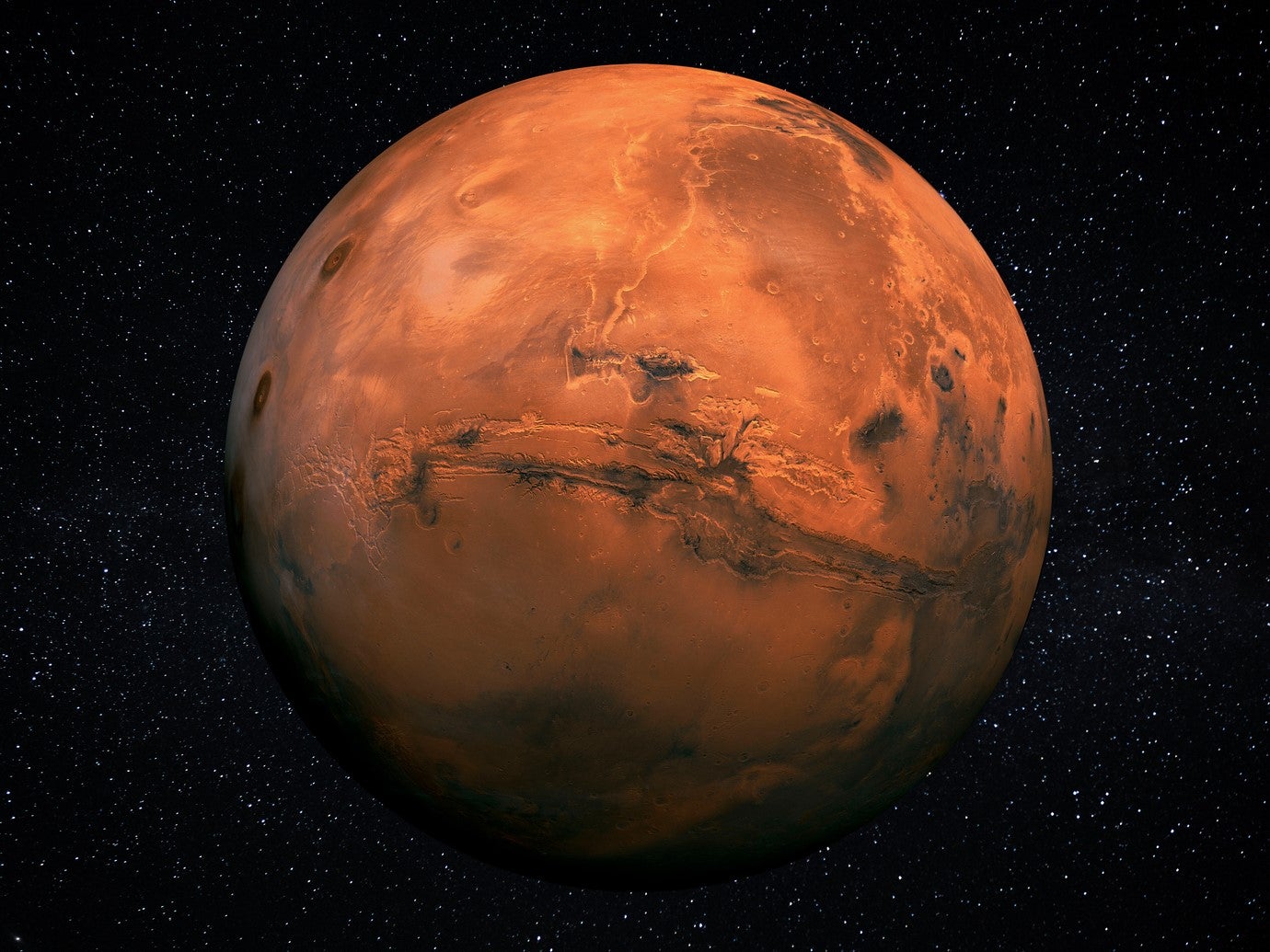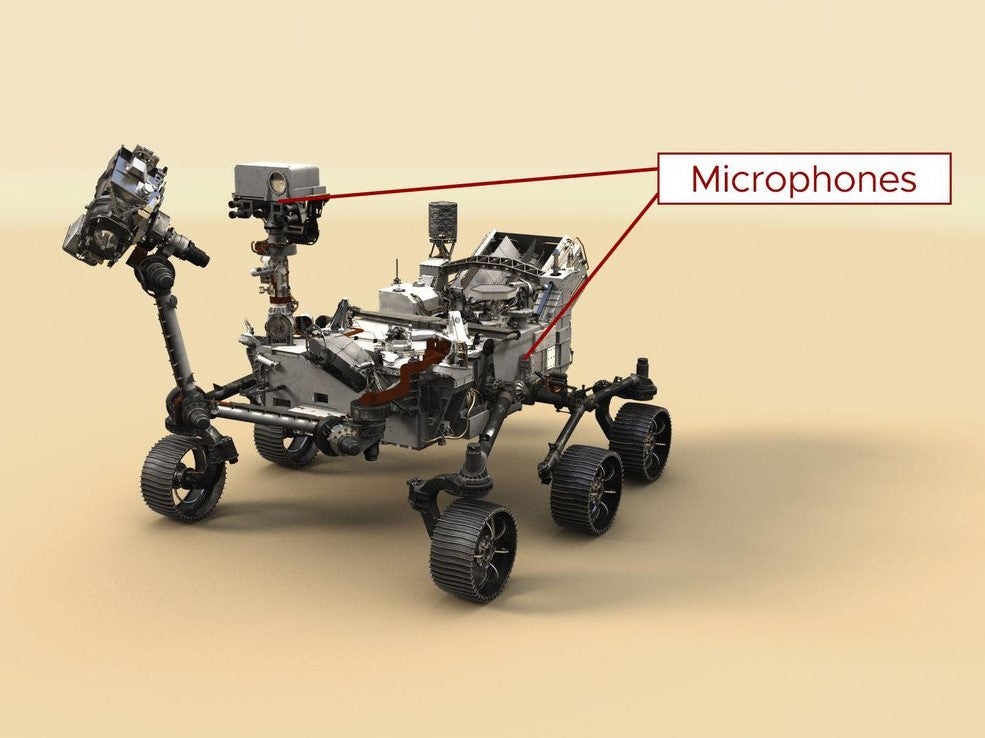Mars audio reveals two speeds of sound
Surprising discovery ‘would make it difficult for two people standing only five metres apart to have a conversation’

Scientists studying the first ever audio recordings made on Mars have discovered there are two speeds of sound on the surface of the planet.
Microphones attached to Nasa’s Perseverance rover, which landed on Mars in February 2021, captured five hours of audio from the Red Planet, which has now been analysed by an international team of scientists.
The recordings included noises made by the rover and its accompanying helicopter, as well as a light Martian wind.
The analysis confirmed for the first time that the speed of sound is slower on Mars compared to Earth, which had been expected due to the atmosphere being much thinner. Comprised of 95 per cent carbon dioxide, Mars’ atmosphere carries sound at 240 metres per second, compared to Earth’s 340 metres per second.
In a surprise discovery, the researchers also noted that there appeared to be two speeds of sound: One for high-pitched sounds and one for low frequencies.
The whir of the helicopter rotors made a sound that travelled at 240 metres per second, while a zap noise made by the rover’s laser travelled at 250 metres per second.
This disparity would “make it difficult for two people standing only five metres apart to have a conversation,” the French National Centre for Scientific Research (CNRS) said in a statement.

Another of the observations made by the researchers was how quiet the surface of Mars is.
“At some point, we thought the microphone was broken, it was so quiet,” said Sylvestre Maurice, an astrophysicist at the University of Toulouse in France and lead author of a study detailing the discovery.
This phenomenon is also a result of the planet’s thin atmosphere, though changeable atmospheric conditions could mean this noise level fluctuates with the seasons.
“Mars is very quiet because of low atmospheric pressure,” said Baptiste Chide of Los Alamos National Laboratory in New Mexico.
“But the pressure changes with the seasons on Mars. We are entering a high-pressure season. Maybe the acoustic environment on Mars will be less quiet than it was when we landed.”
The study, titled ‘In situ recording of Mars soundscape’, was published in the journal Nature.

Join our commenting forum
Join thought-provoking conversations, follow other Independent readers and see their replies
Comments